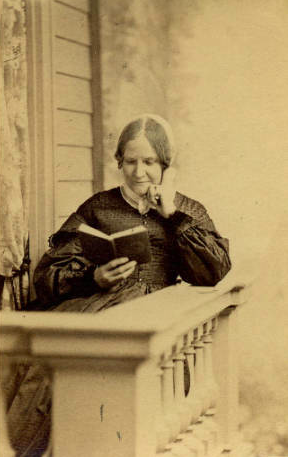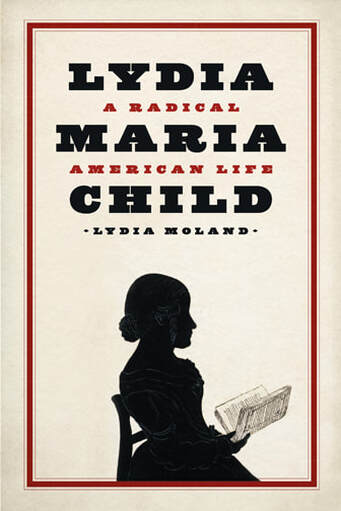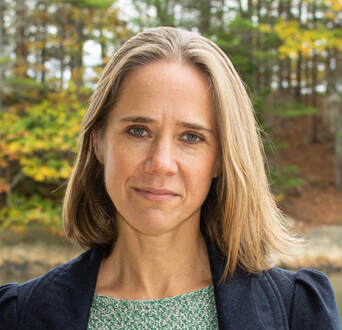Historic Northampton and the David Ruggles Center for History and Education are pleased to present:
Lydia Maria Child: A Radical American Life
A Zoom Presentation by Professor Lydia Moland
A Zoom Presentation by Professor Lydia Moland
|
Wednesday, November 30, 2022 at 7 pm
Register for the Zoom link. Sliding scale admission: $5-25. |
|
When the prominent abolitionist Lydia Maria Child and her husband moved to Northampton in 1838, it was with an ambitious goal: to grow sugar beets to undermine the plantation sugar trade. Sugar beets had never been grown in the U.S. before, but abolitionists like Child (1802-1880) were determined to fight slavery in every way they could.
Once in Northampton, Child attempted to help emancipate an enslaved woman who had been brought North by vacationing Southerners. She also sent reports to Boston abolitionists "outing" Northampton residents who supported the slave trade. Ultimately, the Childs' beet experiment in Florence failed. But Lydia Maria Child's time in Northampton was formative for her activism and laid the groundwork for more abolitionist work. Child’s own philosophical thinking, moral courage, and extensive writing made her one of the most important voices among white Americans fighting to end slavery. Lydia Moland will discuss her new biography of Child, entitled Lydia Maria Child: A Radical American Life, (University of Chicago Press) and suggest lessons from Child's Northampton activism that are relevant today. |
|
Excerpt from
A Personal Prologue, Lydia Maria Child: A Radical American Life by Lydia Moland, 2022 "Lydia Maria Child had written the first book-length argument against slavery in 1833 - a book so progressive in the cause of abolition and so scathing in its attack on Northern racism that Boston society ostracized her. She had been the first female editor of a major American weekly political journal. She had written a two-volume history of women and a three-volume history of religion. When she realized that her country needed guides to home economics, parenting, nursing, or aging, she wrote those too. She tangled publicly with politicians and used her body to shield abolitionist speakers from violent mobs.... Among all these accomplishments, one thing fascinated me most. That was the story of how Child, once incontrovertible evidence of slavery's evil awakened her conscience, had never lived her life the same way again. Living by her conscience made her a radical, unwilling to accept the conventional wisdom of her time and abide by its norms. She had aborted a fledgling career as one of America's first female novelists. She had consigned herself to a life of poverty. She had lost friends and alienated family. Decades later, after a civil war had accomplished what abolitionist activism alone could not, she was still fighting. How had she done that? What had prepared her for that moment of conversion, and what had sustained the life of activism that followed? And what could the example of her life teach me about how to live my own?"
|
Available at the
Historic Northampton Museum Store |
|
Lydia Moland is a Professor of Philosophy at Colby College in Waterville, Maine. Her work on Lydia Maria Child has appeared in the Paris Review, the Boston Globe, the Washington Post, and on National Public Radio.
Through Child's example, Moland asks questions as pressing and personal in our time as they were in Child's: What does it mean to change your life when the moral future of your country is at stake? When confronted by sanctioned evil and systematic injustice, how should a citizen live? Child's lifetime of bravery, conviction, humility, and determination provides a wealth of spirited guidance for political engagement today. |
All proceeds will be split between Historic Northampton and the David Ruggles Center for History and Education.
Header image: National Anti-Slavery Standard, May 20, 1841. Lydia Maria Child's name appears as editor.
Photograph by Bill Holloway.
Photograph by Bill Holloway.


